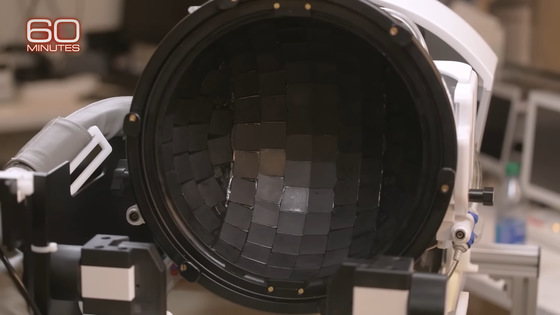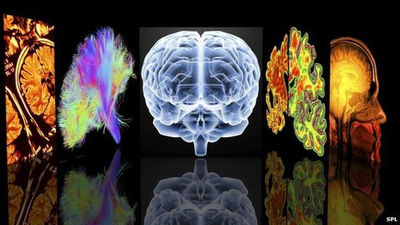Treatments that use ultrasound to slow the progression of Alzheimer's disease and stop drug dependence have appeared.

The American news media CBS featured a research on ``Treatment of Alzheimer's disease and drug addiction using ultrasound technology'' conducted by Ali Rezai, a neurosurgeon at the Rockefeller Neuroscience Institute at West Virginia University. I am.
Neurosurgeon works to slow Alzheimer's progression, treat addiction with cutting-edge technology - CBS News
Neurosurgeon pioneers Alzheimer's, addiction treatments using ultrasound | 60 Minutes - YouTube
The cause of Alzheimer's disease is amyloid-β plaques, which are extracellular deposits of amyloid-β protein present in the gray matter of the brain. It is thought that when the amount of amyloid-β plaques increases, it interferes with brain cell function and causes cognitive impairment. In the figure below, the red area is the area with high density of amyloid-β plaques.

At the time of writing, there are two types of Alzheimer's disease treatments on the market, and both have the effect of promoting the decomposition of plaque. Prescribing these drugs requires a patient to visit the hospital once or twice a month for 18 months or more and receive an intravenous drip for 1 to 2 hours, which is extremely time-consuming. However, as Alzheimer's disease progresses during this time, it is difficult to stop the progression.

The reason it takes time to prescribe therapeutic drugs is that drug ingredients have difficulty passing through the brain's barrier called the '
The treatment method that Dr. Rezai is working on is to focus ultrasound on specific areas of the brain to generate microbubbles in the patient's bloodstream, which temporarily opens the blood-brain barrier. something like. This allows therapeutic drugs to be delivered to the brain much more effectively than before.

The following is an ultrasound irradiation device attached to the patient's head.

When Mr. Rezai applied this treatment to three patients, he found that amyloid beta plaques were reduced by more than 1.5 times compared to conventional methods in 6 months. This treatment, which uses ultrasound to break down amyloid-β plaques more quickly, has been approved by the FDA to explore the possibility of restoring brain cell function lost due to Alzheimer's disease.

In addition, Rezai is applying ultrasound to treat drug addiction as well as Parkinson's disease. The treatment uses focused ultrasound waves to alter electrical and scientific activity in the brain's basal ganglia, the brain's reward system, without the need for skin incisions or opening the skull. Therefore, it is possible to provide effective treatment to addicted patients while avoiding complications and infection risks. In clinical trials that have already been conducted, there have been reports of cases in which drug use could be completely stopped.

'There's always risk, but we can't move forward or discover anything without risk. We have to move forward and take risks, because we're not going to have people with addiction or Alzheimer's disease,' Rezai said. Because the patients are already there, so why wait 10 or 20 years? We should do it now.'
Related Posts:







